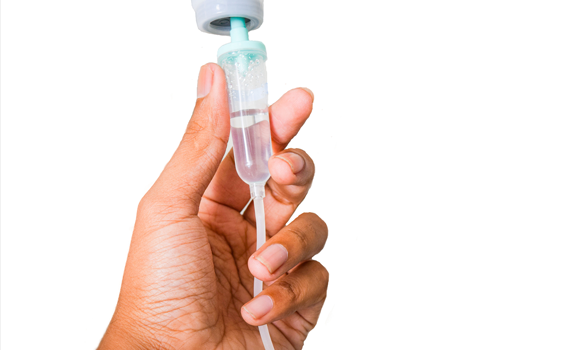Optimizing IV Rehydration Therapy: The Role of Dietary and Lifestyle Factors

IV rehydration therapy is a medical treatment that delivers fluids directly into the bloodstream to replenish hydration levels quickly and effectively. IV rehydration therapy is a valuable medical intervention used to treat dehydration, a condition characterized by the loss of fluids and electrolytes from the body. Whether due to illness, strenuous physical activity, or environmental factors, dehydration can have serious consequences if left untreated. IV rehydration therapy provides a rapid and efficient way to restore hydration levels, helping to alleviate symptoms and support overall well-being.
Dietary Factors
Hydration and Electrolyte-rich Foods: Consuming foods high in water content, such as fruits and vegetables, can complement IV rehydration therapy by providing additional hydration and electrolytes. Foods like watermelon, cucumber, oranges, and spinach are excellent choices for boosting hydration levels naturally.
Electrolyte Balance: Maintaining proper electrolyte balance is crucial for hydration and overall health. Including foods rich in electrolytes, such as bananas (potassium), nuts and seeds (magnesium), and dairy products (calcium), can support the effectiveness of IV rehydration therapy by replenishing essential minerals lost through dehydration.
Avoidance of Dehydrating Substances: Certain dietary substances, such as caffeine and alcohol, can contribute to dehydration by increasing urine output. Limiting or avoiding these substances during and after IV rehydration therapy can help maintain hydration levels and optimize treatment outcomes.
Lifestyle Factors
Fluid Intake: In addition to IV fluids, drinking water and other hydrating beverages can support the effectiveness of IV rehydration therapy by promoting continuous hydration. Aim to drink water regularly throughout the day, especially if engaging in activities that may increase fluid loss.
Rest and Recovery: Adequate rest and relaxation are essential for the body’s ability to recover and rehydrate effectively. Taking time to rest and recuperate following IV rehydration therapy allows the body to absorb fluids and electrolytes more efficiently, enhancing treatment outcomes.
Moderate Exercise: While strenuous exercise can contribute to dehydration, moderate physical activity can stimulate circulation and fluid distribution throughout the body, complementing the effects of IV rehydration therapy. Engage in light exercise, such as walking or gentle stretching, to support hydration and overall well-being.
Avoidance of Dehydrating Conditions: Environmental factors, such as hot weather or high altitude, can increase fluid loss and exacerbate dehydration. Taking precautions to avoid prolonged exposure to these conditions and staying hydrated with IV therapy and fluids can enhance treatment effectiveness.
Consistent Hydration Practices: Establishing and maintaining consistent hydration practices is key to supporting the effectiveness of IV rehydration therapy. Drink water regularly throughout the day, even when not experiencing symptoms of dehydration, to prevent fluid imbalances and promote overall hydration.
Proper Monitoring and Follow-up: After receiving IV rehydration therapy, it’s essential to monitor hydration levels and symptoms closely. Healthcare providers may recommend periodic check-ups or follow-up appointments to assess hydration status and adjust treatment as needed. By staying vigilant and proactive about monitoring hydration, individuals can ensure that they receive the necessary support to maintain optimal fluid balance and overall well-being.
Mindful Eating and Drinking Habits: Practicing mindful eating and drinking habits can further support the effectiveness of IV rehydration therapy. Avoiding excessive consumption of sugary or caffeinated beverages and opting for water-rich foods and hydrating beverages can promote sustained hydration and complement the effects of IV therapy. By making conscious choices about what and how much they consume, individuals can contribute to their overall hydration and treatment success.
Balanced Electrolyte Intake: Alongside fluids, maintaining a balanced intake of electrolytes is crucial for supporting IV rehydration therapy. Electrolytes such as sodium, potassium, and chloride play essential roles in fluid balance and cellular function. Consuming foods rich in these electrolytes, such as avocados, leafy greens, and coconut water, can complement IV therapy by replenishing electrolyte levels and supporting hydration equilibrium within the body. By ensuring a balanced electrolyte intake, individuals can maximize the effectiveness of IV rehydration therapy and promote overall hydration and well-being.
Wrapping Up
While IV rehydration therapy is a highly effective medical treatment for dehydration, certain dietary and lifestyle factors can enhance its effectiveness and support overall hydration and well-being. By incorporating hydration-rich foods, maintaining electrolyte balance, practicing healthy lifestyle habits, and staying hydrated with IV therapy and fluids, individuals can optimize the benefits of IV rehydration therapy and promote optimal health and wellness.
For more information on IV rehydration therapy and how to support hydration and well-being, consult with a healthcare professional.




